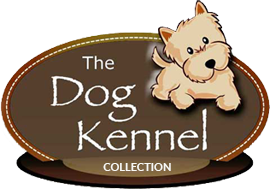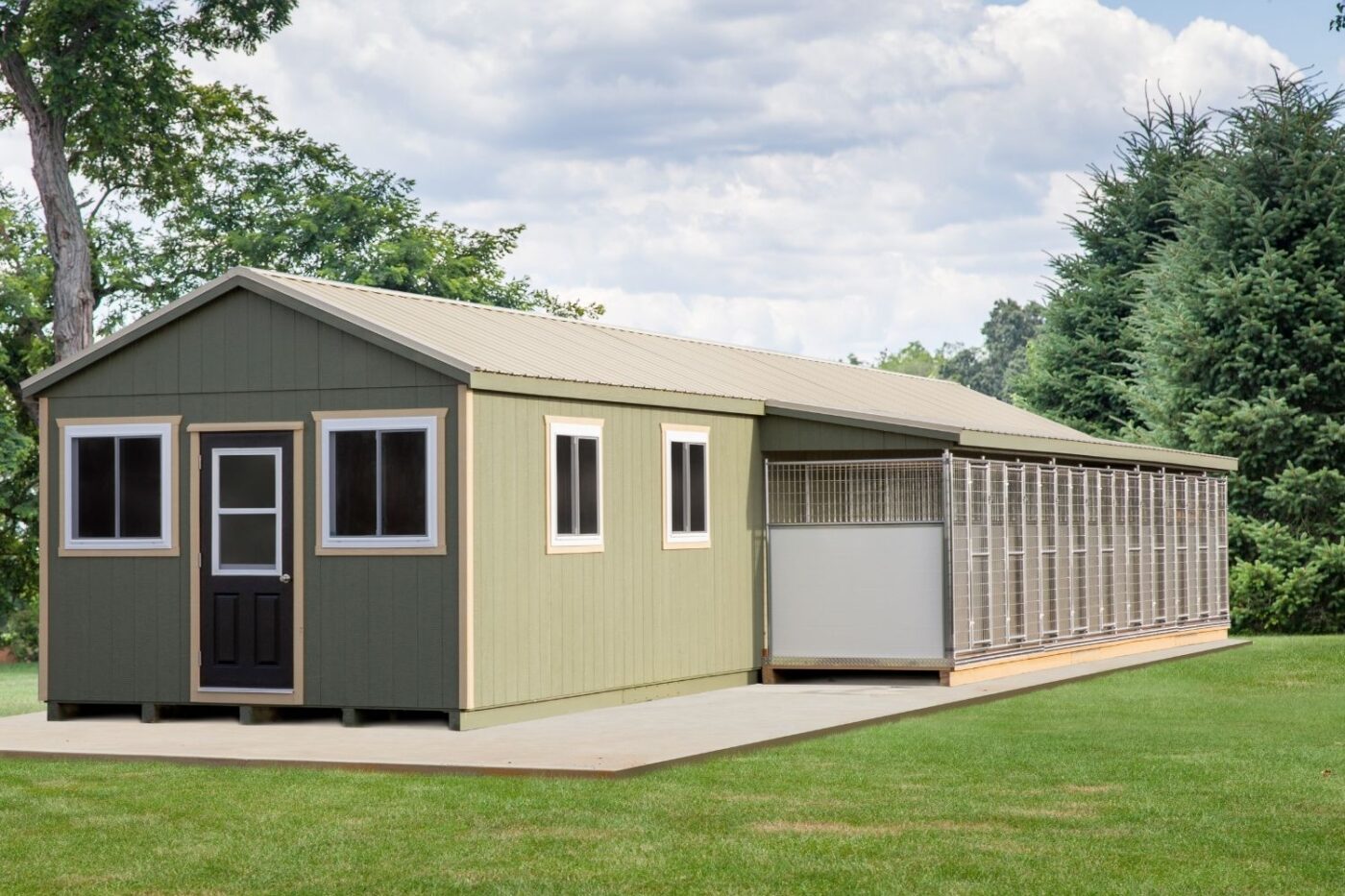
Operating a commercial dog kennel in Washington State involves meeting several legal and regulatory standards designed to protect animal welfare and maintain public safety. Business owners must first secure a valid business license, with specific types and fees varying by jurisdiction. Kennels are also subject to local zoning requirements, which often include property size minimums and setback rules. Animal care standards are strictly enforced, kennels must provide clean, well-maintained enclosures, ensure access to fresh food and water, and maintain proper sanitation throughout the facility. Adequate ventilation and temperature control systems are required to keep animals comfortable year-round, and sufficient space must be provided for exercise. Veterinary care must be readily available for any dog showing signs of illness or injury.
Facilities may also be responsible for maintaining accurate records of vaccinations, health events, and animal transactions. Additional rules can cover noise levels, isolation of sick animals, and staff qualifications. Because requirements can vary by city or county, it’s essential to check with local authorities to stay compliant with all applicable regulations.
Do I Need A Dog Kennel License in Washington State?
Yes, in Washington State, you are required to obtain a dog kennel license if you house four or more dogs on the same property, no matter how ownership is divided or whether the dogs belong to the same household. This applies to both private and commercial setups. If you’re running a business, such as a commercial kennel, boarding facility, or other pet-related service, a separate business license is also necessary. These rules help ensure proper oversight of animal care and facility standards. It’s important to note that requirements can vary by county, so it’s best to check with your local licensing office to make sure you’re fully compliant.
Do I Need An LLC For A Dog Kennel?
Yes, you can operate a dog kennel in Washington State without forming an LLC, but setting one up is strongly recommended. While it’s not a legal requirement, an LLC offers limited liability protection, which means your personal assets are shielded if your business faces debt or legal issues. This is especially important in animal-related businesses, where unforeseen incidents can occur. Operating as a sole proprietorship may be simpler, but it doesn’t provide the same level of security or professionalism that an LLC does. For kennel owners looking to grow their business or minimize risk, forming an LLC is a smart, proactive step.
How Many Dogs Can You Own in Washington State?
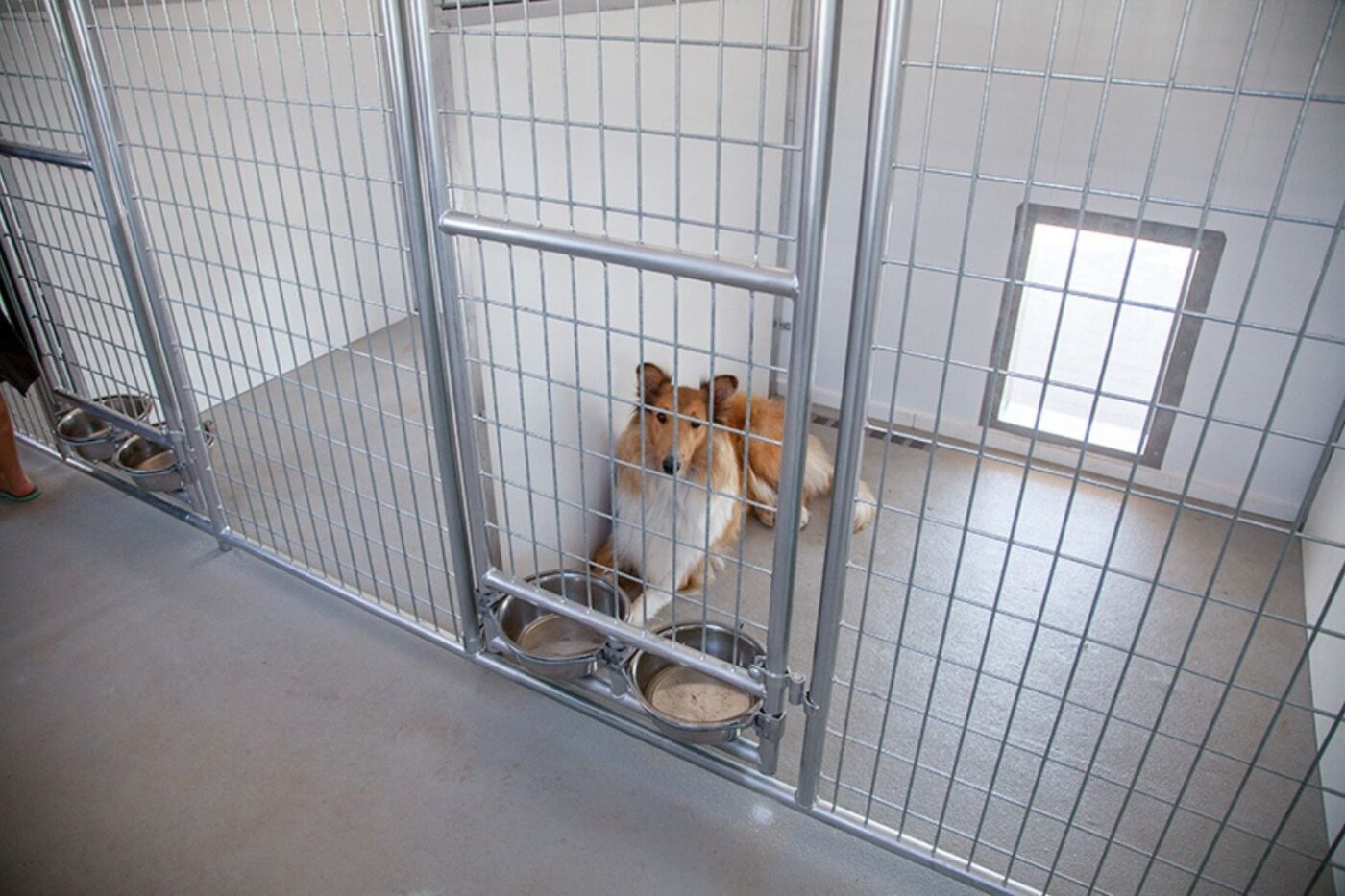
In Washington State, you’re generally allowed to own up to three unaltered dogs per household, but the exact number can vary depending on local regulations. Some cities, like Kirkland, limit pet ownership to three dogs or three cats, or a combination of four total animals, while other jurisdictions may have different rules based on property size or zoning. Households with larger lots may be permitted to keep additional dogs, and in certain areas, applying for a hobby kennel license can authorize you to exceed the standard limit. Local ordinances may also allow for more animals if they fall under recognized accessory uses. Since regulations differ by city and county, it’s always a good idea to check with your local animal control or zoning department to confirm what’s permitted in your area.
How Much Is A Kennel License In Washington State?
The cost of a kennel license in Washington State varies depending on the type of operation and the county where it’s located. Commercial kennels typically pay between $150 and $500 or more, with factors like the number of dog runs and whether boarding services are offered influencing the fee. For private kennels, which are non-commercial but house multiple dogs, fees usually range from $150 to $200. Hobby kennels, intended for non-commercial use, often carry much lower fees, usually around $25 per year plus an additional $1 per dog. Because licensing requirements can differ across municipalities, it’s best to contact your local licensing office to confirm current rates and conditions.
Can You Have A Dog Kennel In A Residential Neighborhood in Washington State?
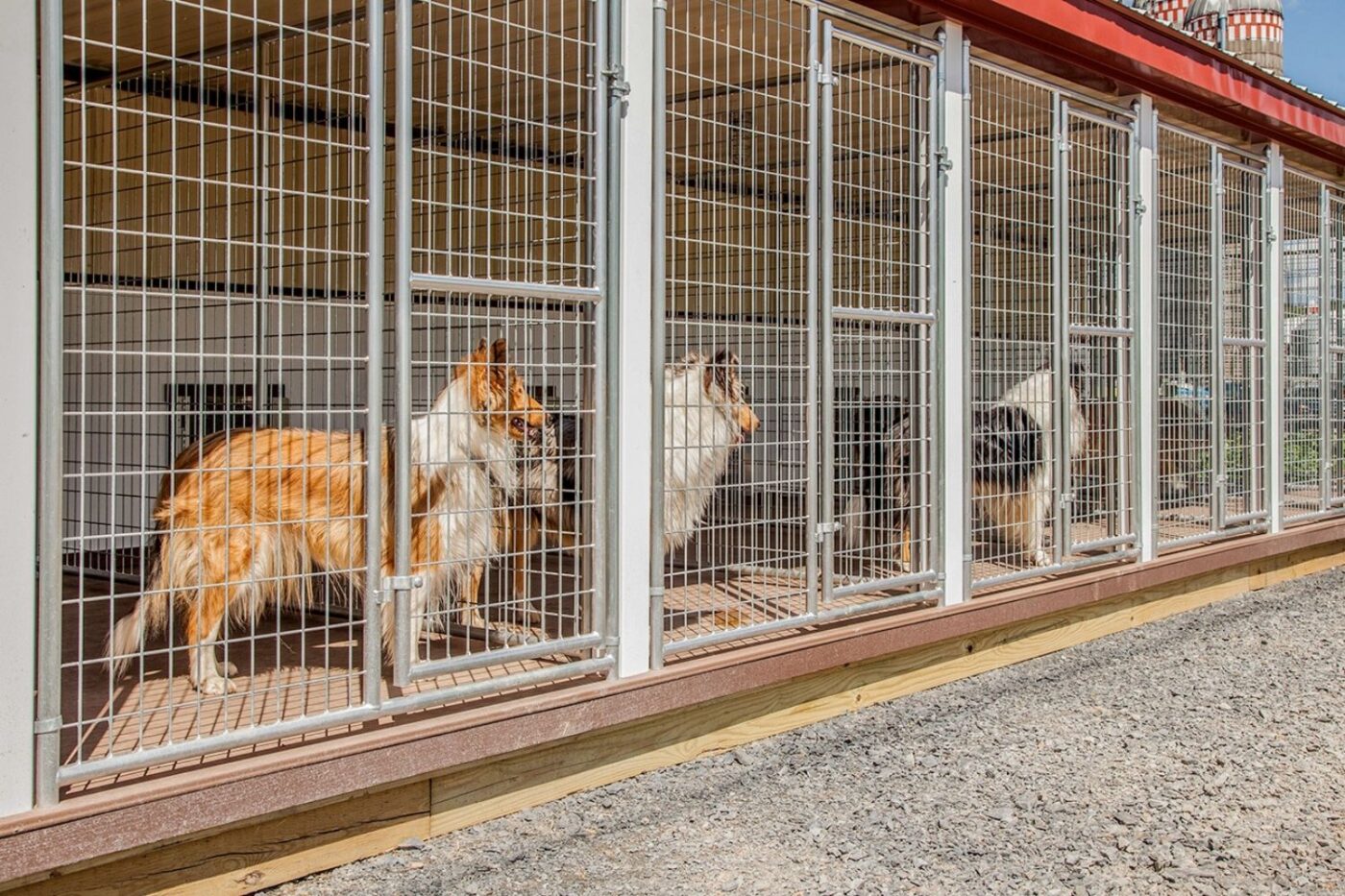
The ability to operate a dog kennel in a residential area in Washington State depends largely on local zoning laws and municipal codes. Each city or county sets its own rules regarding land use, and some may allow kennels in residential zones with restrictions or permits, while others may prohibit them entirely. It’s important to review your local zoning ordinances or consult with your city or county planning department to understand what’s permitted on your property before moving forward.
Examples of Specific Cities
- Kirkland: Pens and enclosures must be set at least five feet away from property lines.
- Newcastle: Enforces stricter rules, requiring at least five acres of land and 100-foot setbacks in residential areas.
- Redmond: Permits kennels in certain zones but may require setbacks and landscaping to reduce noise.
- Snohomish County: Having between four and ten dogs at your residence qualifies as a private kennel and requires a license, with outdoor structures needing to be at least 30 feet from property lines.
Dog Kennel Regulations By Industry in Washington
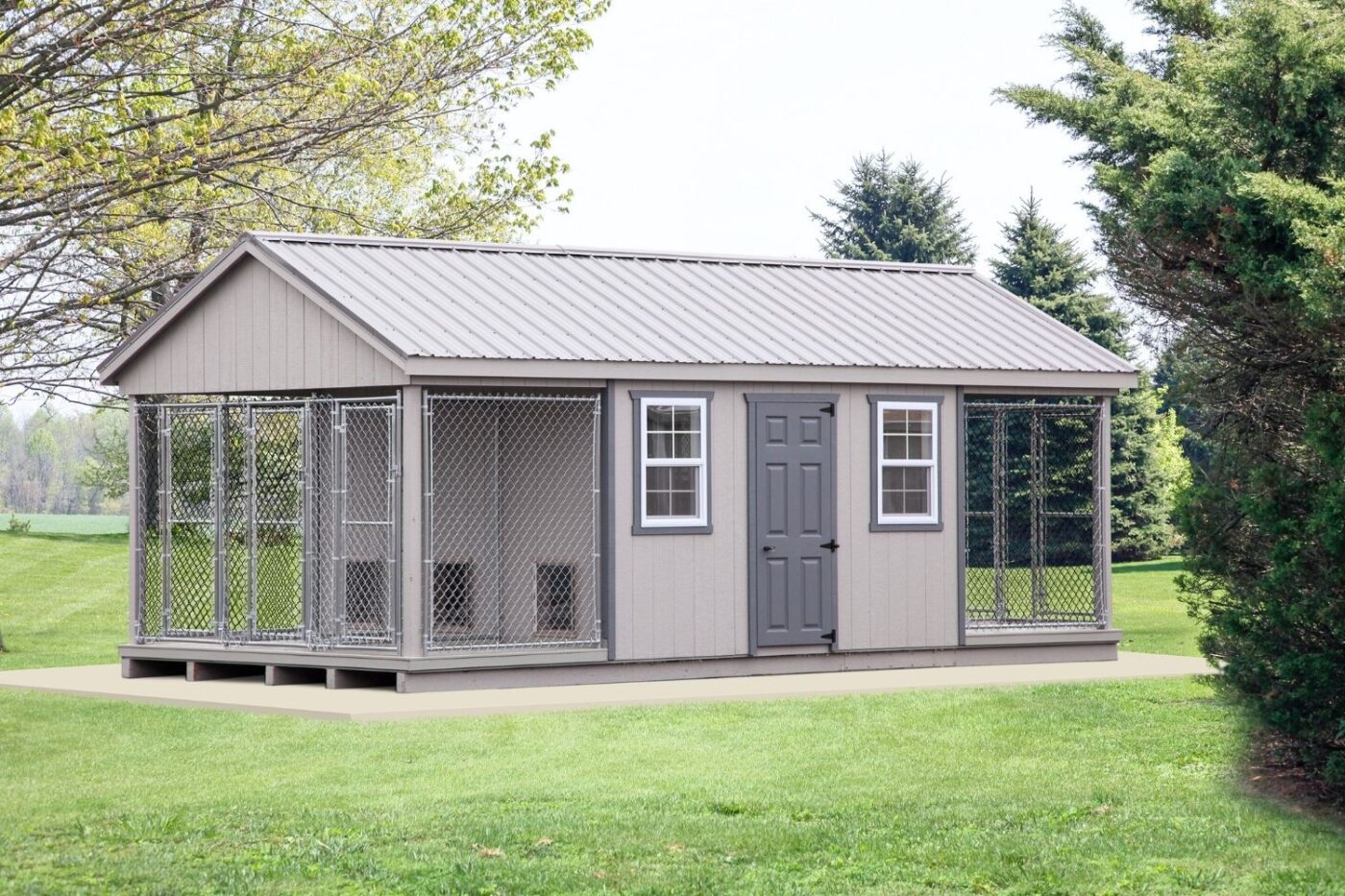
Dog Boarding Regulations in Washington
Dog boarding facilities in Washington State are required to meet specific health, safety, and zoning standards to operate legally. These rules apply to commercial kennels, grooming parlors, and other boarding operations, and are enforced at the county level. While the core regulations are similar across the state, exact requirements may vary depending on local ordinances.
Licensing
- A valid county-issued license is required for all dog boarding, kennel, and grooming facilities.
Zoning Compliance
- Facilities must follow local zoning codes, including required property setbacks and restrictions on outdoor runs.
Facility Standards
- Buildings must be structurally sound, secure, and well-maintained.
- Washrooms with hot and cold running water are required.
- Proper drainage systems must be in place to manage waste and water runoff.
Animal Care & Sanitation
- Enclosures must be sized appropriately for each dog’s breed and weight.
- Clean, fresh food and water must always be available.
- Facilities must offer proper shelter, temperature control, lighting, and ventilation.
- All cages, kennels, and pens must be cleaned and sanitized after each use.
- Grooming tools must be disinfected after every use on each animal.
Infection Control
- An up-to-date Infection Control Checklist must be accessible to staff, inspectors, and customers.
Noise Control
- Noise levels must meet local regulations.
- Some areas may require noise reduction measures or acoustic evaluations.
Puppy Housing
- Puppies younger than 12 weeks cannot be housed with adult dogs unless under direct supervision.
Vaccination Policy
- A written vaccination policy must be clearly posted and enforced.
Local Differences
- County-specific rules may apply, so checking with your local animal control or licensing office is essential.
Dog Vet Regulations in Washington
Washington State enforces clear standards to safeguard the health and well-being of dogs, with responsibilities falling on both pet owners and veterinary professionals. These regulations include requirements for pet licensing, rules on bringing animals into the state, and defined roles for veterinarians and technicians. Licensed vets must follow strict procedures when diagnosing illnesses, providing treatments, or issuing prescriptions. The state also takes animal cruelty and neglect seriously, with violations potentially leading to fines or criminal penalties. Overall, these laws are intended to ensure animals receive proper care and protection throughout their lives.
Dog Grooming Regulations in Washington
In Washington State, grooming businesses are typically required to obtain an annual license and follow certain operational standards to remain in compliance. These facilities must be kept clean, well-maintained, and meet health and safety guidelines to ensure the well-being of the animals they serve. Local governments, such as those in Snohomish and King counties, may have their own specific rules, including inspection procedures and additional licensing requirements for pet-related services. While the core expectations are similar statewide, it’s important for grooming parlor owners to consult their local authorities to ensure they meet all applicable regulations.
Dog Shelter Regulations in Washington
Dog shelters in Washington State must follow specific guidelines aimed at promoting humane treatment and preventing neglect. These regulations require that animals have consistent access to food and water, proper shelter, and medical care when needed. Shelters must also provide enough space for dogs to move freely and get regular exercise. In addition to these care standards, the law addresses issues such as the management of dangerous dogs, rules around abandonment, and the need for proper licensing. Together, these requirements help ensure that shelter animals are treated with dignity and kept in safe, healthy conditions.
Dog Trainer Regulations in Washington
In Washington State, individuals can offer dog training services without needing a specific license or state-issued certification. While there’s no formal requirement to become a trainer, many professionals choose to pursue certifications from recognized organizations, such as the CPDT-KA, to build credibility and demonstrate their skills and understanding of canine behavior. Those planning to run a training business must still meet standard business regulations, including obtaining local licenses or permits and carrying appropriate insurance. For those working with service animals in training, Washington law permits their presence in public spaces but does not guarantee access in employment settings unless a specific waiver is granted. Businesses are allowed to ask limited questions to confirm a service animal’s role, but can only request its removal if the animal poses a risk or behaves inappropriately.
Dog Breeder Regulations in Washington
In Washington State, dog breeding is governed by a combination of state-level rules and local ordinances that vary by city and county. While the state sets baseline standards, like behavior-based definitions for dangerous dogs, local jurisdictions often expand on these regulations with more specific requirements. If you’re breeding dogs for sale, it’s important to understand both state and local laws to ensure full compliance.
Breed-Neutral Dangerous Dog Laws
- State laws define dangerous dogs based on behavior, not breed.
- Local governments can adopt additional breed-specific restrictions (e.g., bans on pit bulls).
Business Registration and Taxes
- Anyone selling dogs as a business must register with the Washington Department of Revenue.
- Breeders are required to file excise tax returns.
Kennel and Pet Shop Licensing
- Local jurisdictions may require licenses for kennels and pet shops.
- Licensing rules often depend on the number of dogs and the type of operation.
Facility Requirements
- Local ordinances may require secure fencing, proper shelter, and consistent access to clean food and water.
- Some areas set limits on how many unaltered dogs (over six months old) can be kept on one property.
Breeding Practices
- Regulations may include standards for separating litters from adult dogs and ensuring humane care.
USDA Licensing Requirements
- Breeders with more than four breeding females who sell puppies online or wholesale may need a USDA license.
K-9 Dog Facilities in Washington
In Washington, facilities that manage K-9 units, particularly those tied to law enforcement, must adhere to strict guidelines focused on handler and dog training, operational readiness, and policy oversight. Each K-9 team, which includes a certified officer and a trained dog, must undergo initial and continuous education in key areas like tracking, evidence detection, and suspect apprehension. Certification is typically granted by recognized organizations such as the Washington State Police Canine Association or similar regional bodies. Patrol dogs often receive several hundred hours of foundational instruction, followed by routine monthly training to maintain their effectiveness.
Handlers, who must be sworn law enforcement or correctional officers in good standing, are also required to complete an in-depth basic course. Many departments have internal policies outlining the appropriate use of force and protocols for K-9 deployment, and regular recertification ensures continued compliance.
Dog Kennel Laws By County in Washington
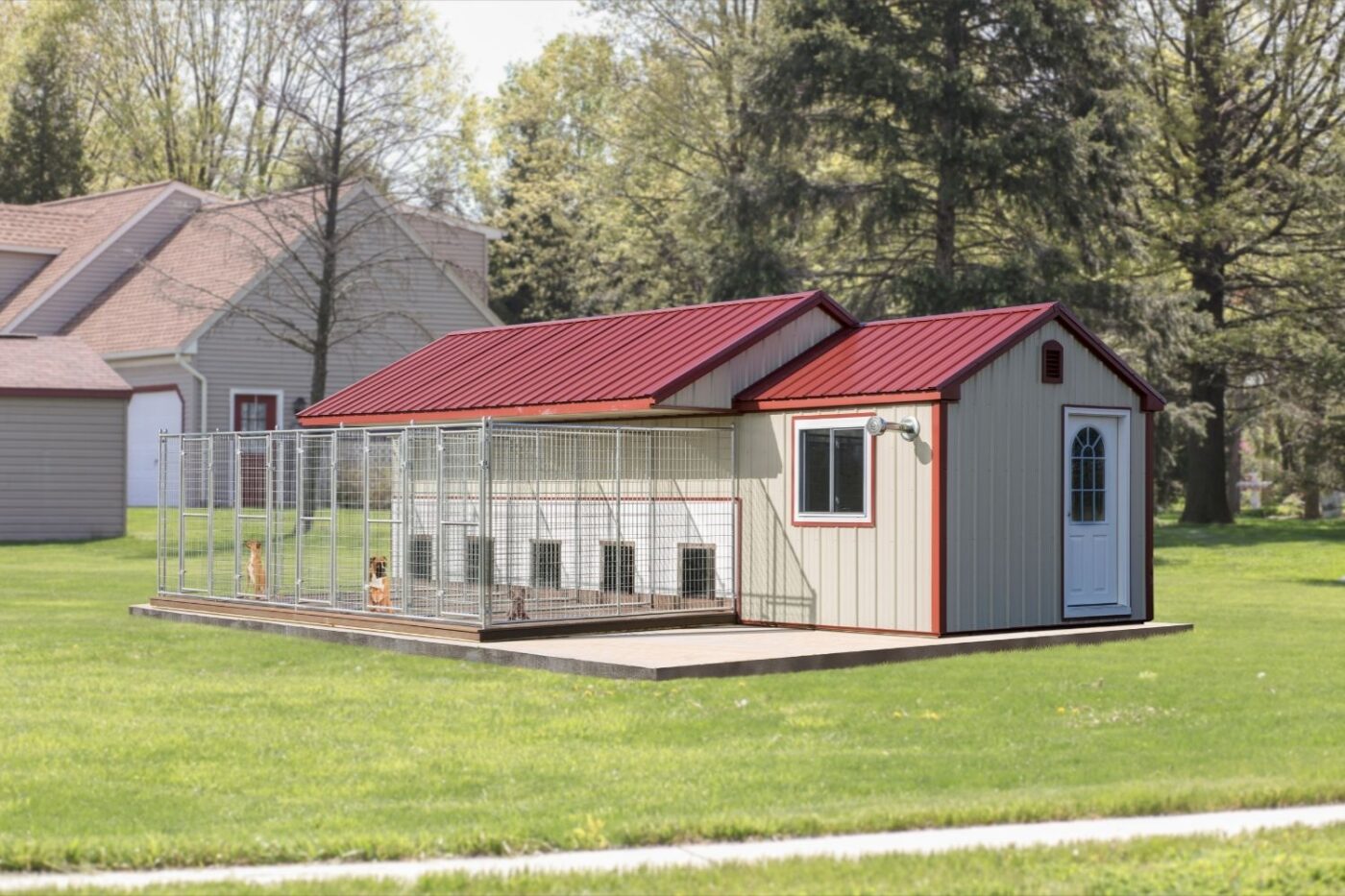
Dog kennel regulations in Washington differ by county and may include rules on dog limits, facility size, location, and other local requirements. For the most accurate details, use the link provided to reach your county’s planning department.
Dog Kennel Laws By City in Washington
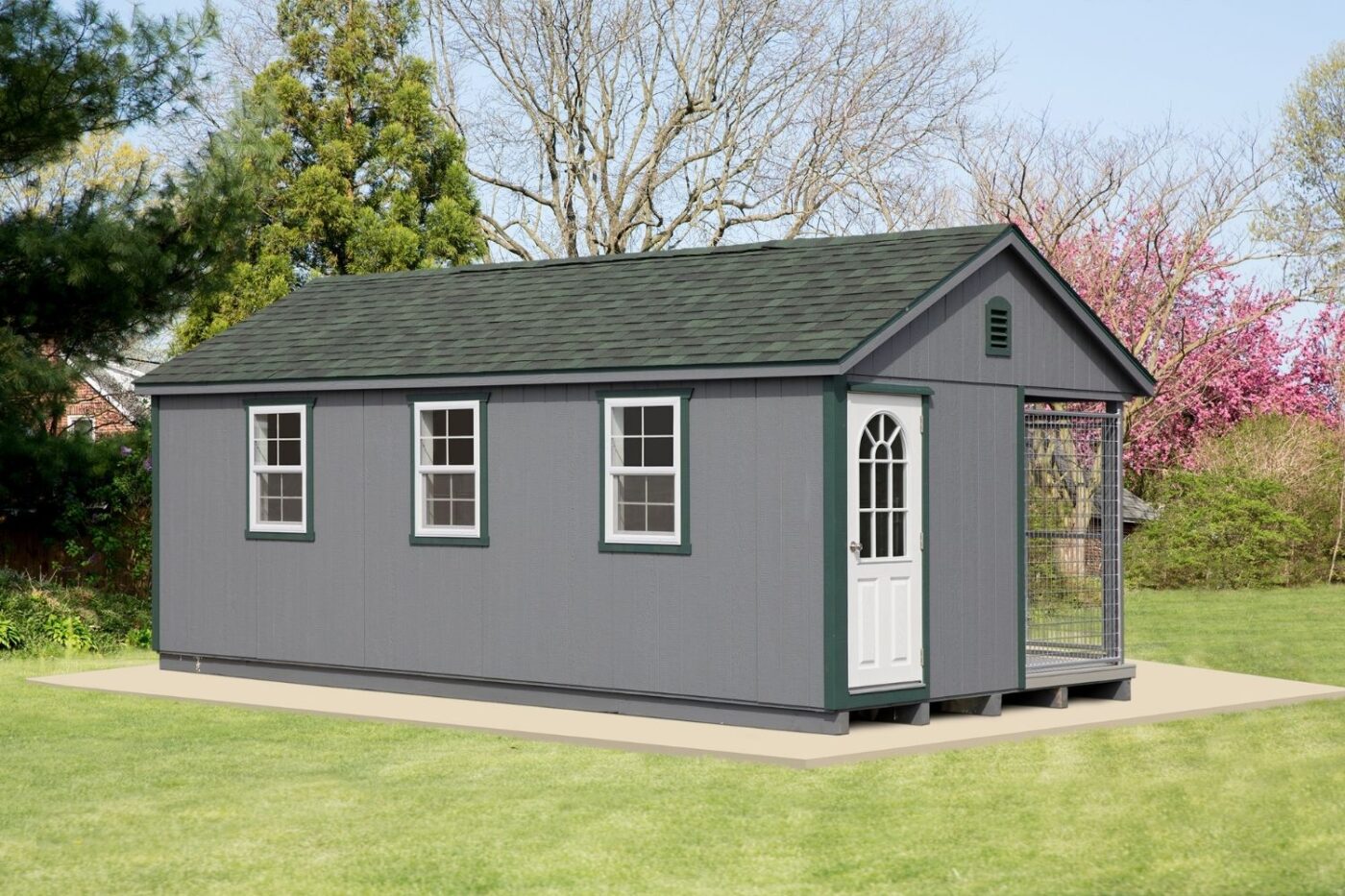
Kennel regulations in Washington vary by city and often depend on factors such as the number of dogs, facility size, and other local guidelines. For the most current and accurate details, contact your city’s planning or zoning department using the chart below.
Ready To Start Your Dog Kennel Business?
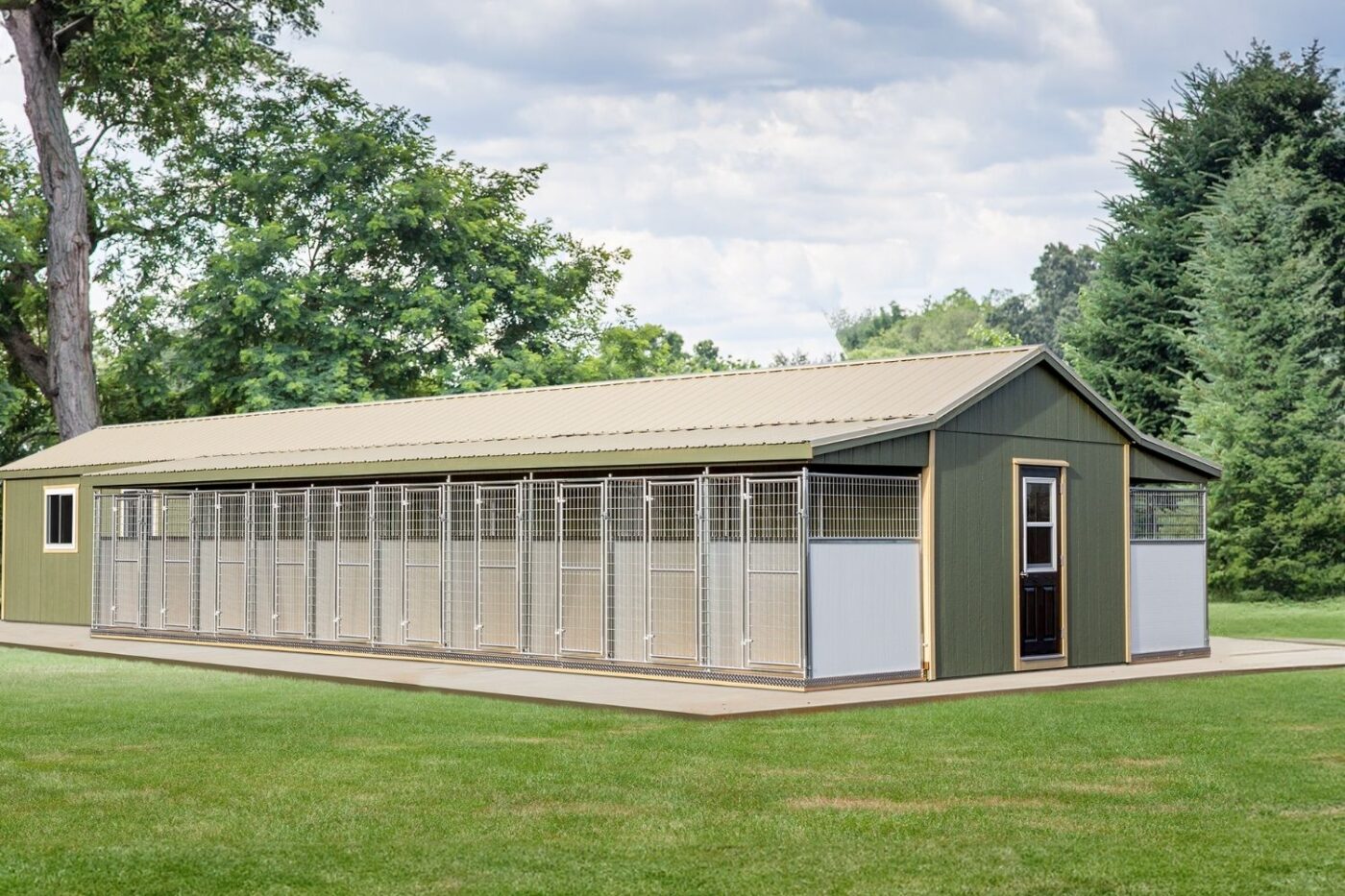
If you’re planning to open a commercial dog kennel in Washington, choosing the right facility is just as important as meeting legal requirements. At The Dog Kennel Collection, we offer high-quality, customizable commercial dog kennels designed to meet local standards for comfort, durability, and safety. Whether you’re boarding, breeding, or running a full-scale pet care business, our structures are built with features that support proper sanitation, ventilation, and animal welfare. Explore our available commercial dog kennels and take the next step toward launching a professional, regulation-ready kennel facility your clients and their pets will trust.
